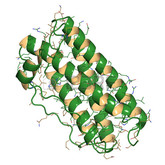Biosimilars
Life cycle and regulatory evaluation of biosimilars
The life cycle of a biosimilar, like any biological, starts with research and development, then manufacturing, and is followed by regulatory evaluation of quality, safety and efficacy for both licensing and post-licensing oversight. Once licensed, a biosimilar is an individual product and post-licensing evaluation should be carried out like any other biological. The only difference for a biosimilar is that regulatory approval relies on the safety and efficacy data and knowledge gained during the development and licensing of an originator, or reference product.
Etanercept biosimilars submitted to EMA and launched in Japan
An etanercept biosimilar has been submitted to the authorities in Europe and Japan, and another etanercept biosimilar has been launched in Japan.
WuXi Biologics expands its biologicals manufacturing facilities
China-based WuXi Biologics, headquartered in Wuxi city of Jiangsu Province, is expanding its biologicals manufacturing capacity with new facilities planned in Ireland, China, Singapore and the US.
Regulating biosimilars throughout their life cycle
A resolution to increase access to life-saving biologicals was passed in May 2014 at the Sixty-seventh World Health Assembly of the World Health Organization (WHO) [1]. However, there still exist barriers to market access for biosimilars. Authors Drs Hye-Na Kang and Ivana Knezevic, from WHO, discuss the factors that give rise to these barriers and explain the importance of regulatory oversight throughout the product life-cycle of biosimilars [2].
EMA approves adalimumab and trastuzumab biosimilars
The European Medicines Agency’s (EMA) Committee for Medicinal Products for Human Use (CHMP) announced on 1 June 2018 that it had recommended granting marketing authorization for the adalimumab biosimilars Halimatoz, Hefiya and Hyrimoz, and also for the trastuzumab biosimilar Trazimera.
FDA approval for pegfilgrastim biosimilar Fulphila
The US Food and Drug Administration (FDA) announced on 4 June 2018 that it had approved its first pegfilgrastim biosimilar.
Celltrion resubmits biosimilar rituximab to FDA
South Korean biotechnology company Celltrion announced on 30 May 2018 that it had resubmitted its application for marketing approval for its candidate rituximab biosimilar, CT‑P10, to the US Food and Drug Administration (FDA).
Interchangeability between infliximab biosimilars with respect to immunogenicity
In their editorial, Katsanos and colleagues [1] discuss a study carried out by Italian and Spanish researchers on the immunogenicity of infliximab biosimilars that finds that there is full interchangeability between infliximab biosimilars with respect to immunogenicity [2].
Biosimilars in Europe
The European Medicines Agency (EMA) has pioneered the regulatory aspects of biosimilars since the first approval of a biosimilar in 2006. With the last authorization of bevacizumab in January 2018, 44 biosimilar products have been reviewed by the Committee for Medicinal Products for Human Use (CHMP) of EMA, 41 of them having been granted a marketing authorization [1].
EC approval for infliximab biosimilar Zessly
Sandoz, the generics division of Novartis, announced on 24 May 2018 that it had received European Commission (EC) approval for its infliximab biosimilar Zessly (PF‑06438179).













